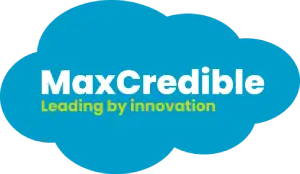This gives you more control over the order to cash process
This gives you more control over the order to cash process
An efficient order to cash process (O2C) is important for every company. In fact, it largely determines the financial health of an organization. Is the process running smoothly? This then leads to fast payments, more control over cash flow and lower operational costs. For example, you have to chase invoices less often and the margin of error is lower. In addition, a fast ordering and payment process ensures more satisfied customers and less frustration between employees. Companies therefore pay a great deal of attention to the order to cash process. Yet many organizations fail to really get a grip.
Wat is het order to cash proces?
The order to cash process includes all steps and actions that come into motion as soon as a customer places an order, up to and including receiving and processing the payment. The goal: a smooth process and fast payment.
This may sound simple, but the more complex the product, the greater the chance of obstacles. The industry and the size of the company also play a decisive role. At a physical store you simply exchange a product for (cash) money. However, do you supply software with long lead times, many customer-specific agreements and are multiple departments involved? Then it gets more complicated.
Basically, the O2C process consists of the following parts:
-
Order processing
-
Stock (product) or availability (service)
-
Shipping and delivery
-
Billing
-
Payment
-
Credit management
-
Reports
In the route to payment, there are all kinds of factors that complicate the process. Customers who are unable or unwilling to pay, inaccuracies on the invoice, orders or invoices remain lying around for too long, there is miscommunication between departments… and so many other stumbling blocks.
What goes wrong with the order to cash process?
Although software and systems have brought many improvements, a lot of companies still have too little insight into their order to cash process. With late payments, lengthy processes and complaints as a result.
One of the main causes for errors in the process is poor communication between sales and credit management. In many companies, these two departments each operate on the basis of their own objectives.
Marketing & sales are mainly concerned with bringing in leads and customers, but are little aware of the costs that certain agreements generate further in the process.
-
Example: Sales makes unclear quotations or individual agreements with customers that they do not share with credit management. As a result, customers receive the wrong invoice and lead to late payments and dissatisfaction.
If marketing with campaigns focuses on target groups that pay poorly, or if sales do not pass on the correct agreements and the invoice is paid 90 days later ... then that puts a huge pressure on profitability.
Conversely, credit management does not pay enough attention to their impact on customer satisfaction.
-
Example: Credit management is not flexible in individual agreements with the customer, as a result of which the organization risks losing the customer.
In short: collecting the payment or keeping the customer is not seen enough as a joint responsibility.
‘First contact’ to cash proces
Do you want to focus much more on a fast and profitable process? Then the process should not start with the "order". You only start optimizing when the sales task is done, so the process never becomes a shared responsibility. Also, everything that happens for the order is not in the picture.
Do you really want to speed up the order to cash, reduce costs and prevent late payments? Then you will have to expand the order to cash model to a "first contact to cash" model and ensure that the entire journey is connected.
By linking different systems and data flows, each department gains 360 degrees of insight into the customer and you can set common goals. You can also easily set up smart workflows that automate almost every step in the process.
Some examples of smart workflows:
-
Marketing automatically gains insight into the payment behavior of customer groups. Do students often pay late and are there more debits for this group? Then that is included in the pricing, for example.
-
Every customer contact is recorded. Quotations and contracts automatically roll out of the system based on predetermined frameworks.
-
Quotations are given a maximum turnaround time and customers automatically receive a reminder when the quotation is about to expire.
-
Does the customer sign for approval? The invoice will be sent automatically, including cat bells before the date expires. The collection process also starts without human intervention at the right time and via the right channel.
This approach means that companies significantly reduce late payments, reduce collection costs and speed up their cash flow.
Would you like to learn more about the order to cash process?
Would you like to read more about improving your order to cash process and how to set up a first contact to cash process quickly and easily? Then download our whitepaper. Would you like to know immediately what we can do for you? Please contact us for one demo.
